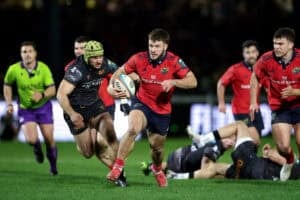Three writers -- including bestselling "Wild Swans" author Jung Chang -- will no longer attend the Macau Literary Festival after authorities there said they were likely to be barred, the latest sign of Beijing's hardening line across its territories.
Macau is a semi-autonomous part of China and the move to scupper the writers comes as Beijing ramps up warnings against any challenges to its authority and sovereignty.
London-based Chang has been highly critical of China’s political system. Her works, which include an explosive biography of Mao Zedong, have been banned on the mainland.
The two other authors targeted by officials have both written in-depth about North Korea, which counts China as its main ally and diplomatic defender.
“We were informed informally, unofficially, that it was not considered timely that these guests would come to Macau at this moment and that there was a high probability that they would not be allowed to enter Macau,” the festival’s co-founder and programme director Hélder Beja told AFP.
Beja said the information had come from “the relevant authorities” but did not want to expand further.
He confirmed that the authors had been informed and would now not attend the event which will kick off Monday.
“We advised them not to come because we did not want to put them in that position,” Beja told AFP.
Some pro-democracy activists and Hong Kong journalists have in the past been barred from entering Macau, where the partially elected local government is loyal to Beijing.
New York-based author and investigative journalist Suki Kim, who went undercover to write a bestselling book about life in North Korea, was one of the three writers to fall foul of authorities, says Beja.
The third was James Church, a pseudonym used by a former Western intelligence officer who has written a series of novels about a fictional North Korean policeman called Inspector O.
Beja said Church had been set to speak publicly about his work at the festival while Chang and Kim would also have talked about their major titles.
A report from China’s rubber-stamp legislature Monday omitted language supporting the political autonomy of Hong Kong and Macau that had featured prominently in previous years, seen as a signal of a hardening stance.
Beja said he had never before experienced interference since the event first started in 2012.
Better-known as a gambling enclave, Macau has a thriving arts scene and the festival pulled in 15,000 visitors last year.
Hong Kong PEN, a literary campaign group which defends freedom of expression, described the author ban as “deplorable”.
“We urge the Macau administration not to use access to their city as a covert tool of political control in determining what kind of books are deemed acceptable,” it said in a statement.
The Macau government had no immediate response when contacted by AFP for comment.






